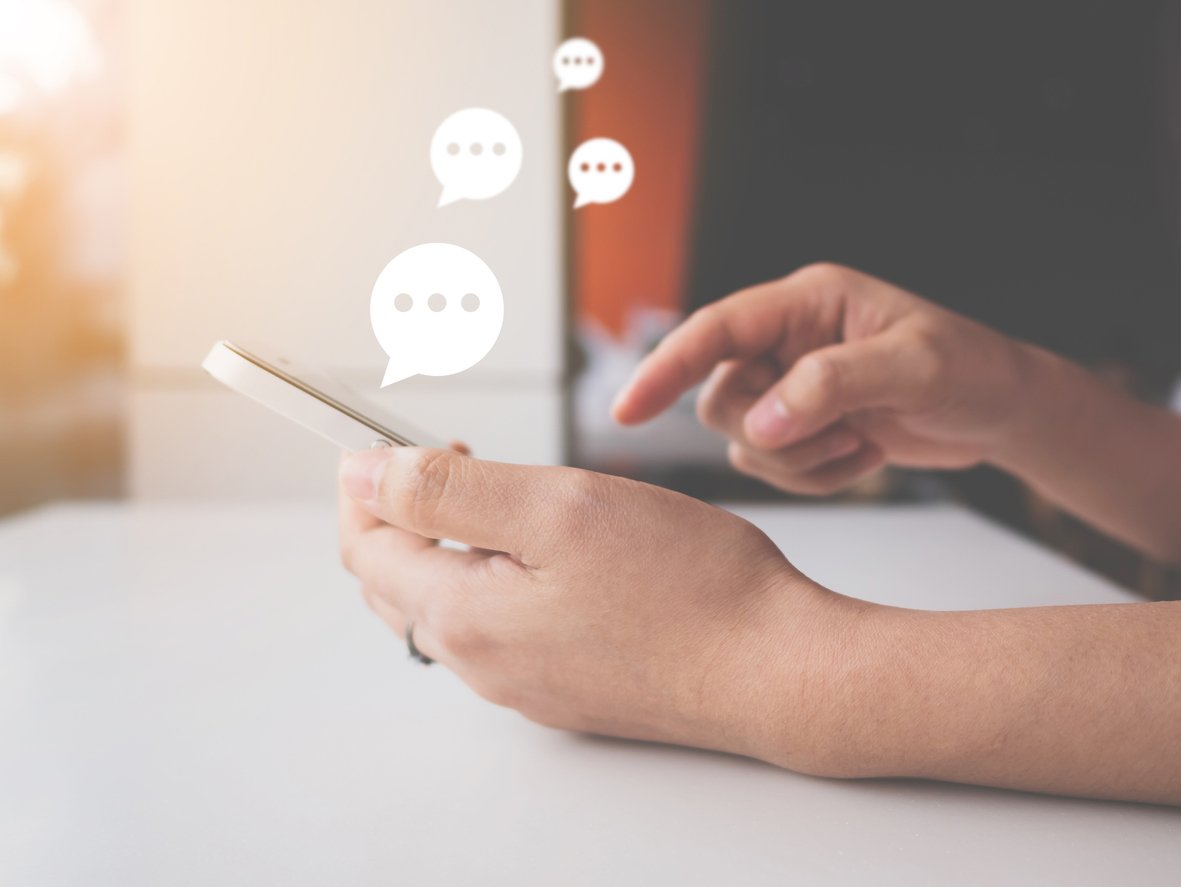
Voice Dialer App vs. VOIP Dialer [a Comparative Guide]
 Updated on
Updated on
 By Rob Marquez
By Rob Marquez
Rob Marquez
Originally from Southern California, Rob moved to Denver over 4 years ago to join the Ringy team as a Mobile Engineer. Rob received his BS and MS in C...
learn more
Rob Marquez
Originally from Southern California, Rob moved to Denver over 4 years ago to join the Ringy team as a Mobile Engineer. Rob received his BS and MS in C...
Table of Contents
Table of Contents
"OK Alexa, call John!"
It's wild how far technology has come, right?
Not too long ago, you had to choose between using the internet or making a phone call. Today, in 2025, you can multitask, activate your voice assistant, and even call thirty people in a row without lifting a finger.
And yet, some things haven't changed:
Even with all our cool new tech, 92% of client interactions still happen over the phone.
Which means: the way your reps prepare, dial, and follow up still heavily impacts your sales results.
Now, think about it—how are you handling your daily calling tasks?
Are you using a voice dialer app, a VoIP dialer, or something else entirely?
Yep, we figured you might say that.
If you're wondering about the difference, you're not alone.
Before we dive in, here's a quick primer: a voice dialer app allows users to place calls simply by speaking a name or number, perfect for hands-free communication, whether you're on an Android, using a voice dialer iPhone app, or even integrating voice dialing service features into sales force app development.
In contrast, Voice over Internet Protocol (VoIP) dialers use internet connections instead of traditional phone lines to route calls, offering cost-effective and flexible communication solutions.
Stick around because this guide will break down the key differences and help you choose the best tool for your needs.
What is a BT Dialer?
A BT dialer (short for Bluetooth dialer) is a compact device that connects to your tablet or smartphone, allowing you to dial, receive, and manage calls like you would with a basic feature phone.
However, a BT dialer is not a standalone tool, it's an accessory. It needs to be paired with another device to work properly, preferably predictive dialling. Predictive dialing is a sophisticated outbound calling system that automatically dials multiple phone numbers simultaneously, using algorithms to predict when a live agent will be available to handle a connected call. This is a far cry from simply using your voice to initiate a single call.
This practicality makes a BT dialer appealing for salespeople and anyone who needs to stay reliably connected on the go.
Another advantage? Work-life separation. A BT dialer helps you avoid mixing personal and business calls—something today's smartphones definitely don't make easy.
BT Dialer vs. Basic Voice Dialer: How They Compare
Now, how does a basic voice dialer – whether it's a built-in feature on your voice dialer iPhone or an Android voice dialer app, stack up against a BT dialer? Let's take a look:
|
Feature |
Basic Voice Dialer (e.g., Siri, Google Assistant) |
BT Dialer |
|
Core Function |
Initiates calls using voice commands. |
Acts as a physical interface for making calls. |
|
Integration |
Integrated directly into the OS or a specific app. |
Connects wirelessly to another device. |
|
Use Case |
Quick, hands-free calls; simple voice dialing service. |
Convenient for on-the-go calling without handling a larger device. |
|
Call Automation |
Limited to initiating a single call at a time. |
No inherent call automation features. |
|
Predictive Dialing |
Not a standard feature. |
Not a standard feature. |
While a BT dialer is great for maintaining steady availability with minimal disruption, a voice dialer app for Android or iPhone offers more powerful features when it comes to hands-free, high-volume calling and smart integrations.
BT Dialer Use Cases in High-Volume Sales Environments
In environments where sales reps need to dial dozens (or hundreds) of prospects daily, like inside sales or B2B prospecting, a voice dialing service or full sales force app development with integrated voice dialer features is a smarter choice.
For example:
- Voice dialer apps can automatically pull contact lists from your CRM and start calls hands-free.
- Google voice dialer for Android devices can even suggest leads to call next based on recent activities.
- Predictive dialing algorithms (common in many VoIP systems) allow reps to connect with more live leads while spending less time listening to ringtones or voicemail.
In short:
- BT dialers are helpful for convenience.
- Voice dialer apps are essential for scalability and performance in sales.
2 Types of Voice Dialing Service
Not all voice dialing services work the same way. Depending on the technology behind the app, your experience, especially in a high-speed sales environment, can vary quite a bit.
Let's break it down:
1: Speaker-Dependent Voice Dialing Service
A speaker-dependent voice dialing service requires you to train it first. That means you must pre-record voice samples, like contact names or commands, before the system can recognize and act on your spoken requests.
Example: Want to call John? You first need to record yourself saying "John." Later, when you say "Call John," the dialer matches the sound pattern to your recording.
While this method can offer highly accurate matches for a small group of contacts, it's a major drawback for sales professionals:
- Time-consuming setup: Imagine recording hundreds of prospect names individually.
- Limited scalability: Every new lead would need manual voice entry.
- High maintenance: You'd constantly have to update and re-record entries as your client list changes.
This makes speaker-dependent voice dialing services impractical for industries where reps regularly interact with dozens or hundreds of contacts. If you're managing a fast-paced calling environment through a voice dialer app for Android or planning sales force app development, this type simply won't keep up.
2: Speaker-Independent Voice Dialing Service
A speaker-independent voice dialing service doesn't require any pre-recording.
Instead, the system listens to your spoken command ("Call John") and instantly matches it against your device's contact list. Whether you're using a voice dialer iPhone app, a Google voice dialer for Android, or a third-party voice dialer app, most modern systems use this speaker-independent model.
Benefits:
- Zero setup time: No need to "teach" the system.
- Dynamic updates: As new contacts are added, they are instantly available.
- Hands-free efficiency: Ideal for sales reps who need to move quickly between calls.
However, there's a catch: Speaker-independent systems aren't perfect at distinguishing similar-sounding names. If you have five "Johns" or three "Sarahs" in your CRM, the dialer may misfire or require manual confirmation, which costs time and introduces potential errors during sales outreach.
Pro Tip: For maximum efficiency, when using a voice dialing service in sales, keep contact names specific (e.g., "John Marketing" vs. "John Sales") to help the system make more accurate matches.
Voice Dialer vs. Sales Dialer

Before we get into the details, here's a quick cheat sheet: who should use what, and when?
|
Need/Use Case |
Best Option |
Why |
|
Occasional hands-free calling (e.g., while driving) |
Voice Dialer App (Android, iPhone) |
Simple, voice-activated calls without the need for heavy sales features. |
|
Making a few personal or business calls daily |
Voice Dialer App |
Quick voice access to saved contacts without needing automation. |
|
High-volume outbound sales calling |
Sales Dialer (VoIP Dialer) |
Auto-dialing, CRM integration, call tracking, and scalability. |
|
Sales teams need to log calls, track metrics, and coach reps |
Sales Dialer (VoIP Dialer) |
Built-in analytics, call recording, and management tools. |
|
Campaigns requiring call scheduling and local presence dialing |
Sales Dialer (VoIP Dialer) |
Advanced functionalities for improving connection rates and outcomes. |
|
Highly mobile teams needing simple call access but no CRM workflows |
Voice Dialer App |
Lightweight, device-native or app-based calling without complex systems. |
Welcome skim-readers and people who read through the voice dialer app dilemmas alike. It's time we addressed the real questions here.
Are voice dialers and VoIP the same? What's VoIP?
Most importantly: what the hell should you get for your sales team?
For starters, voice and VoIP aren't the same.
The story with a voice dialer app pretty much ends at voice command functionality, whereas VoIP is a whole system of calling and receiving phone calls over the internet.
You can use it as long as you have an internet connection wherever you are, unlike landlines, which can only be accessed on-premise (at your office, for example).
VoIP has a whole range of cool features designed to help you smash your sales objectives:
- Auto-dialing
- Call recording, tracking, and forwarding
- Conferencing
- CRM integration
- Local caller ID
- Call coaching, etc.
Essentially, VoIP is a modern, improved telephony system in and of itself, not just a way of dialing or receiving calls. And it works on any device.
If you wanted to, you could easily combine it with Google Assistant to access voice control functionalities.
To nobody's surprise, the global VoIP market is expected to reach $508.7 billion by 2030.
It's the sales calling solution of the century.
And, being such a sales powerhouse and all, VoIP, of course, offers a couple of dialer options you can choose from besides manual dialing.
VoIP dialer types

There are four main VoIP dialer types in use:
- Manual dialing - no automation
- Preview dialer - low automation
- Power (AKA progressive) dialer - medium automation
- Predictive dialer - high automation
We trust you know your manual dialing - pick up the phone, press some buttons, wait for the person to respond. Standard protocol.
The other three types are subtypes of auto-dialing.
Each has some pros and cons and can work wonders in different sales and customer support scenarios, depending on the level of automation you need, pre-call prep time, etc.
Let's see how they work.
Preview dialer
Preview dialer is the slowest, most controlled, and most mellow dialing option.
It has a 1:1 calling ratio, meaning one call is made per available agent, so there are no awkward hold times or abandoned calls.
Then, the agent either has:
- Limited time to check client info (hence the name "preview") before their number is auto-dialed, OR
- Unlimited preview time and can signal whenever they're ready for the call to be made
This puts the agent in full control of each call and ensures they're prepared to provide the best possible service to each prospect.
But, this is also the least productive of all dialing options.
Power dialer
Next up with medium automation, we have power or progressive dialers.
Balanced between quality and quantity, these dialers have a 1:1 calling ratio but with one big difference: no waiting time between calls.
In other words, as soon as an agent finishes one call, the next prospect is immediately auto-dialed.
This eliminates any idle time between calls and the possibility of agents hesitating or picking who to call next.
And what if a call is unanswered?
A power dialer can do one of two things:
- Let agents decide when to drop the call or leave a message
- Or automatically filter out unanswered dials and only forward the answered ones to available agents
It's the safest, most well-rounded option for sales.
Like your standard diet with a little bit of all foods for good measure.
Predictive dialer
Finally, the "go big or go home" super cyborg dialer 3000.
Predictive dialer goes above and beyond to maximize your on-call time and productivity, even if it involves a little bit of dark magic to get you there.
Fine, it's just complicated math. Like there's a difference.
Anyway, your calling ratio with this dialer is 3:1 or even 5:1.
Yeah, predictive dialers don't waste time.
The next prospects are dialed before an agent has finished the current call based on automatically calculated agent availability times.
But there's more.
Unlike preview or power dialers, predictive dialer calls 3-5 prospects at the same time and then connect the first answered call to a free agent.
Sound risky? It can be.
If more than one person answers at the same time, they receive a pre-recorded message or are put on hold.
Same thing if it turns out the estimated availability turns out to be incorrect and an agent takes more time for their current call.
Not ideal for your customers.
As cool as they are, if well-handled, predictive dialers are not for the faint of heart.
They can be tricky to implement successfully because of all the fine-tuning you need to do beforehand to make sure your customer experience (CX) doesn't go downhill.
Auto-dialer types' pros and cons

|
Preview dialer |
Power dialer |
Predictive dialer |
|
|
Pros |
|
|
|
|
Cons |
|
|
|
|
Best for |
|
|
|
As you can see, there's a time and place for each VoIP dialer.
That's why it's good to have the option to switch between them depending on the circumstances instead of relying on a single one for everything.
But if you had to choose, a power dialer would probably be the safest bet.
Now, how does all that compare to voice dialer apps?
Voice dialer app vs. VoIP dialer comparative table
|
Feature |
Voice Dialer App |
VoIP Dialer |
|
Voice activation and recognition |
Yes |
Yes |
|
Mobile access |
Yes |
Yes |
|
Auto-dialing |
No |
Yes |
|
Call scheduling |
No |
Yes |
|
CRM integration |
No |
Yes |
|
Local ID |
No |
Yes |
|
Whisper/in-call coaching |
No |
Yes |
Woah.
That's the last time you'll ask that question, huh?
I mean, it's hardly even comparable.
VoIP dialers have everything you could get from a voice dialer app, plus a whole world of sales-friendly features on top.
It's no contest.
You know what you need to do. ASAP.
But if not…
7 Reasons to Integrate VoIP Dialer in Your Sales Process

Seven reasons why the blog post can only go on for so long.
You'll get the picture, though, so buckle up!
1. Save Time with Automation
With a VoIP dialer on your side, your sales reps don't have to waste time doing manual sales process tasks like:
- Sorting through lead information to figure out who to call next
- Pressing numbers like it's 2005
- Racking their brains to remember previous client conversations
Instead of wearing themselves out before the real work even begins, reps can automate dialing, access CRM data instantly, and focus their energy where it counts — having actual conversations.
In fact, companies that use VoIP systems report up to a 50% reduction in operational costs because of better automation. That's fewer expenses, more closing.
2. Boost Contact Rates
You could have the best sales pitch in the world, but if no one's picking up your calls, you're stuck.
Here's where a VoIP dialer really shines.
Thanks to local caller ID features (something a basic voice dialer app can't offer), you can appear as a familiar, trustworthy number rather than some shady unknown caller.
Need proof? 79% of unidentified calls go unanswered. But when you show up as a local number, your answer rate can increase by four times or more.
That's not just a boost — that's a full-on lifeline for your sales pipeline.
3. Improve Lead Response Speed
Speed kills, in the best possible way, when it comes to sales.
Studies show that if you respond to a lead within 5 minutes, you're 100 times more likely to make contact compared to waiting 30 minutes or more.
A voice dialer app might let you quickly call contacts with a voice command ("Call John!"), but it doesn't give you smart automation.
With a mobile VoIP dialer, you can:
- Instantly connect with new leads
- Route calls to available agents
- Auto-forward missed calls
- Tap into mobile VoIP to stay reachable anywhere, anytime
And considering that 82% of customers expect an immediate response these days, staying fast isn't optional, it's survival.
4. Keep Conversations Organized
Ever been caught on a call thinking, "Wait, who is this again?"
Don't worry, we've all been there. But you don't have to stay there.
With CRM service integration baked into a VoIP system, your reps can access complete lead profiles and conversation histories the second someone calls.
You'll have everything from previous interactions to deal stage data, without switching between ten apps.
That means:
- No frantic note-flipping
- No awkward "Remind me again…" moments
- No lost leads because you couldn't remember their kid's name or last pain point
A basic voice dialer for Android or voice dialer iPhone? Yeah, not gonna help you there.
5. Enable Remote & Hybrid Teams
In 2025, remote and hybrid work is the new normal. (And honestly, who's giving up sweatpants at this point?)
A VoIP dialer is designed for teams that aren't chained to an office desk.
Whether you're working from a coffee shop, your couch, or an airport lounge, VoIP ensures:
- Full access to your sales tools
- Seamless call forwarding to remote devices
- Reliable connectivity without being stuck in one place
Contrast that with a voice dialer app, which is fine for personal use but doesn't offer the heavy-duty remote management sales teams need.
If you want to enable real flexibility without sacrificing productivity, VoIP is the move.
6. Gain Actionable Insights
Want to know who's killing it on your team and who's still figuring it out?
With features like call tracking, recording, whisper coaching, and detailed analytics, a VoIP dialer hands you real data on a silver platter.
You can:
- Monitor call quality
- Analyze talk-to-listen ratios
- Review client satisfaction scores
- Help your reps improve without micromanaging them to death
And remember: Companies that use advanced sales analytics improve their conversion rates by up to 30% compared to those that don't.
7. Increase Sales Conversion Rates
All of this, the automation, the speed, the insights, the local ID, leads to one thing:
Higher conversion rates.
When you can consistently:
- Reach prospects faster
- Build trust immediately
- Offer personalized, informed conversations
- Support your team with actionable coaching
You can close more deals. Period!
It's simple: If you're serious about turning leads into loyal customers, upgrading from a basic voice dialing service to a VoIP dialer isn't just smart, it's essential.
FAQ: Voice Dialers and Sales Teams
Are voice dialers legal in the US?
Yes, voice dialers and VoIP dialers are legal in the US. However, they must comply with laws like the Telephone Consumer Protection Act (TCPA), which regulates auto-dialing and requires consent for marketing calls.
How many calls can a predictive dialer make per hour?
A predictive dialer can make up to 100-150 calls per hour per agent, depending on call duration, list quality, and system settings. It optimizes calling speed by dialing multiple numbers at once.
Can Ringy's CRM act as a voice dialer too?
Yes, Ringy's CRM integrates a built-in VoIP dialer that offers voice activation, auto-dialing, lead management, and full CRM functionality, way beyond what a simple voice dialer app can do.
What's the best dialer for insurance agents?
For insurance agents, a power dialer is often the best choice. It balances productivity and personalization, allowing agents to reach more prospects without sacrificing conversation quality, essential for building trust in insurance sales.
Conclusion: VoIP + CRM = Sales Power Couple

We'd say you could use a voice dialer app, but we're not sure those even exist anymore.
The days when you needed an app for voice dialing services are long gone.
Literally, every phone nowadays has this feature!
VoIP dialers are where you actually unlock dozens of sales-friendly features.
They can:
- Cut your work in half
- Automate the boring parts
- And make you look like the most attentive sales team your clients have ever met
Plugged into a CRM?
Even better.
Request a demo with Ringy if you want to experience sales from a centralized platform that ties all your loose ends into a streamlined system.

Skyrocket your sales with the CRM that does it all.
Calling? Check. SMS? Check. Automation and AI? Check. Effortlessly keep in touch with your customers and boost your revenue without limits.

Take your sales to new heights with Ringy.
Sales in a slump? Ringy gives you the tools and flexibility you need to capture leads, engage with them, and turn them into customers.
Subscribe to Our Blog
Enter your email to get the latest updates sent straight to your inbox!
Categories
Related Articles




































































































